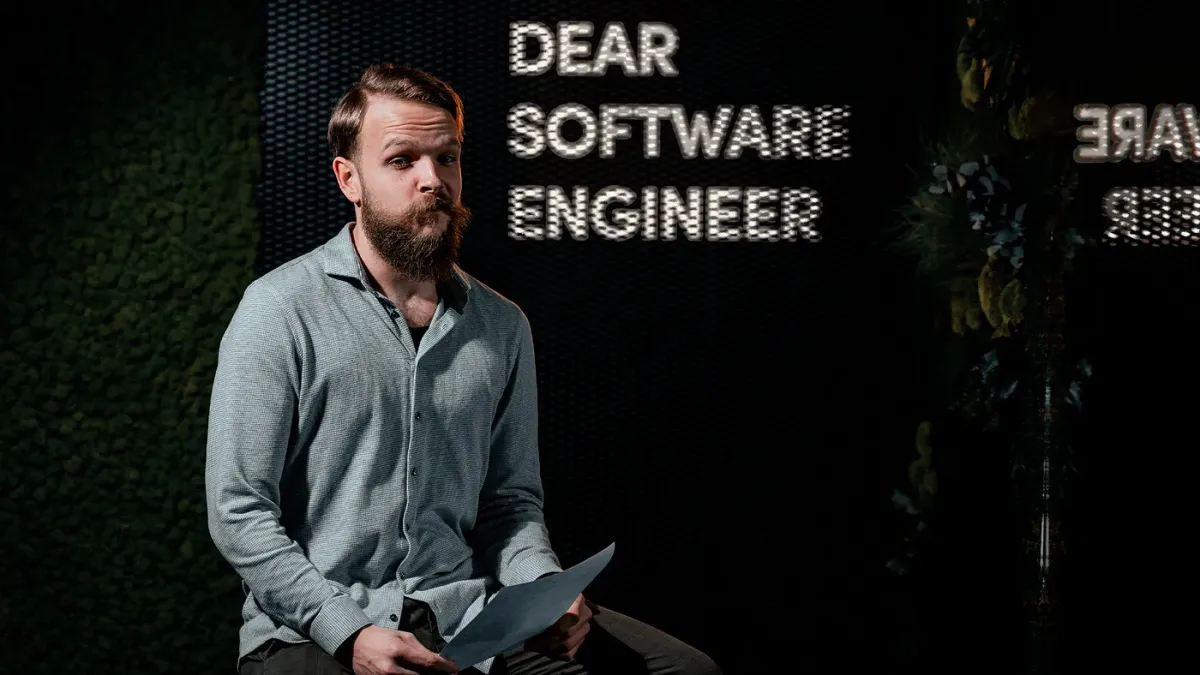Stress in the workspace
Stress is common in the IT industry, but managing it effectively is key to thriving. This article shares Adi's personal insights and practical tips on overcoming stressors like imposter syndrome, maintaining work-life balance, and fostering mental well-being in fast-paced environments.

Starting a new job is always an exciting and challenging experience, and that’s certainly been the case for me in my recent role as a DevOps Engineer. I was thrilled to be joining a new company, but I quickly found that the stress of the job was taking a toll on me.

Overcoming imposter syndrome, working on complex projects, constantly feeling that I was catching up, were just some of the things I was dealing with. But despite the challenges, I persevered and now I’m excited to share my experience with you.
In the beginning, I found myself struggling to keep up with the pace of the job. I was constantly feeling overwhelmed and burnt out, and it seemed like I was never able to fully relax. I was having trouble focusing, my appetite was off, and I was feeling anxious and stressed majority of the time. I knew that something had to change if I was going to be able to keep up.
Overwhelming yourself with your own thoughts is the easiest wrench you could throw at your inner workings. Imposter syndrome at the beginning was my biggest crunch, but as time passed I managed to understand my worth.

Your own mind is not the only obstacle which you will face day in and day out. Not all stress is caused by work, many outside factors are major instigators as well. World disasters, wars, and personal issues are all examples of outside stressors which we easily mistake for actual work stress.
It is important to separate and group stressors — doing this makes you resilient to stress collision.

I reached out to my friends and colleagues for guidance and support, and they helped me to find ways to manage stress that worked for me. I started prioritising self-care, incorporating regular exercise and meditation into my routine, as-well as taking regular breaks throughout the day to step away from my work and clear my mind. I also made sure to communicate effectively with my team, so that we could work together to prevent and solve problems before they became major stressors.
It wasn’t easy, but I persisted and I’m happy to say that my experience in the job has been much more positive since then. I still have my moments of stress, but I know now how to manage them and make sure that I’m taking care of myself both physically and mentally.
I like to think of myself as someone who is winning these battles with stress by constantly putting myself out there. So this article is one small way of putting myself out there once again. For any of who may be fighting these same battles here are some techniques I’ve learned for coping with stress in the workspace. Above anything else keep going!
As you may experienced, stress is a part of the IT industry, but it’s important to remember that it is not always a bad thing. A certain level of stress can help you stay focused and motivated. But it’s important to recognise when stress is becoming too much and take steps to address it. Everyone handles stress differently, so it’s important to find ways to manage stress that work for you.
Some tips for managing stress in the IT workspace include:
- Prioritise self-care: Make sure you’re getting enough sleep, eating well, and engaging in regular physical activity.
- Communicate effectively with your team: This can help you prevent and solve problems before they become major stressors.
- Practice mindfulness techniques: such as deep breathing, meditation, and yoga.
- Take regular breaks throughout the day to step away from your work and clear your mind.
- Seek support when you need it, whether that means talking to a friend or family member, seeing a therapist, or reaching out to an Employee Assistance Program.
Now I will break each of them down and write the things I did personally that did the trick.
They will be represented in quotes :D

Prioritising self-care:
- Make a schedule that includes time for sleep, meals, and physical activity. Aim for at least 7–8 hours of sleep each night, and make sure you’re eating healthy, well-balanced meals.
I threw out the mindless scrolling
If my goal is to wake up at 7, I am in bed at least by 1
To cut down on snacks and sugary sweets, I switced them with fruits
- Incorporate regular physical activity into your routine, whether that means going for a run, hitting the gym, or taking a yoga class.
Each morning I do at least a 10 minute yoga
- Make sure you’re taking care of your mental health as well. Try to set aside some time each day to relax and unwind, whether that means reading a book, listening to music, or taking a bath.
Besides helping me focus, music can separate the work from pleasure, switch up the playlist through the day
Each morning, before any kind of previous routine I do a 10 min meditation

Communicate effectively with your team:
- Make sure to clearly communicate your needs and expectations with your team members.
Before ending a call, walk through the entire task list
Double check the criteria of a task if not fully clear
- Encourage open and honest communication within the team, so that everyone feels comfortable bringing up any issues or concerns they may have.
Owning up to my 💩, this will not only make you focus on the future hiccups, but it will motivate others to do the same.
- Have regular check-ins and meetings to discuss progress, roadblocks, and any other issues that may have arisen.

Practice mindfulness techniques:
- Incorporate mindfulness practices into your daily routine, such as deep breathing exercises, meditation, or yoga.
- Try to stay present in the moment, rather than dwelling on the past or worrying about the future.
Rather than thinking what I could have done, started thinking forward what I can be doing.
- Take a few minutes each day to focus on your breath and clear your mind.
Clear your mind, whether it be from conversations, problems of the past.
You can achieve this by writing them down on a paper and revisiting it to add more.

Take regular breaks throughout the day:
- Take a short break every hour or so to step away from your work and clear your mind.
Like with writing down your thoughts, it is important to let them have their space. Not every thought is focus worthy nor is it clear, but you need to give yourself space to setup out of the moment and reflect.
- Take a longer break in the middle of the day to recharge and refocus.
This can be stepping out of the office, work area or even changing your entire surroundings.
- Consider taking a walk or getting some fresh air, it can help to clear your head and reduce stress.
Rather than jumping into a car or transportation immediately, go for a walk a block or two, see how this affects your train of thoughts. Then modify it to your needs.

Seek support when you need it:
- Reach out to friends, family, or a therapist for support and guidance.
- Utilize Employee Assistance Programs that may be available through your workplace.
- Don’t hesitate to ask for help if you’re feeling overwhelmed or stressed.
Remember that it’s important to find ways to manage stress that work for you, and what works for one person may not work for another. Be open to trying new things and don’t be afraid to ask for help when you need it.
Before I let you go, here is a friendly letter from an SRE to a Software Engineer. A Letter written from a place of love, collaboration and understanding.
Here it goes…
You open up the letter and it stated the following…
Dear Software Engineer,
I hope this letter finds you well. I wanted to take a moment to express my appreciation for the hard work and dedication you bring to our team. Just like with every puzzle, your contributions are the invaluable piece and I am grateful to have them.Being a DevOps engineer means I am always switching people, contexts, projects, meaning it is a constant chaos. Having somebody like you next to me makes it all worthwhile.
That being said, I have noticed that there have been some instances of friction and misunderstandings between us. I understand that with any team, there will always be disagreements and different ways of approaching problems. However, I believe that transparency and open communication can help us navigate these challenges more effectively.I conducted a list of topics which could help reduce the friction we may have from time to time:- Let us encourage open and honest communication by creating a safe and non-judgmental space where team members feel comfortable sharing their thoughts and ideas.
- Let us practice active listening during conversations to ensure that everyone is heard and understood.
- Let us use "I" statements when expressing opinions or concerns to avoid placing blame on others.
- Let us share updates on work progress and projects regularly to keep team members informed and on the same page.
- Let us be willing to admit when mistakes are made and take responsibility for them.
- Let us encourage feedback from team members and be open to constructive criticism.
- Let us take the initiative to resolve conflicts and misunderstandings as soon as they arise.
- Let us be respectful and considerate of others' opinions and perspectives.
- Let us lead by example, use transparency and good communication skills ourselves.
I understand that change can be difficult, but I firmly believe that these measures will lead to a more productive and harmonious working relationship between us. I am committed to doing my part to make this happen, and I hope that you will join me in this effort.Thank you for your time and consideration.
Sincerely,
Your DevOps Engineer




